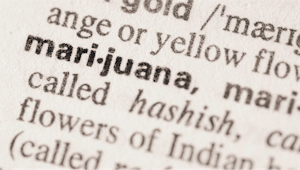
Photo courtesy of Cornbread Hemp
Hemp Oil vs CBD Oil: What’s The Difference?
Recently, there has been more and more talk about hemp CBD oil. Scratching your head? How exactly is hemp CBD oil different from cannabis CBD oil? Created with Cornbread Hemp.
What’s the difference between hemp oil vs CBD oil? Aren’t they the same thing?
Let’s take a look at the differences between hemp-derived CBD, hemp seed oil, and cannabis-derived CBD, so you can find the product that’s right for you.
What Is Hemp-Derived CBD Oil?

Photo courtesy of Cornbread Hemp
Hemp-derived CBD oil is derived from industrial hemp plants. Many civilizations have grown these plants throughout history for their fiber, excellent for making rope, paper, and sails for ships.
Nowadays, hemp is making a significant comeback. It’s grown for cleaning soil, making biodegradable hemp plastic, and even making hempcretes that can be used to build houses. However, hemp’s real cash cow is hemp-derived CBD products.
Because of the 2014 Farm Bill, hemp with high levels of CBD but only trace amounts of THC can be grown around the U.S. following state-sponsored programs.
Then, these hemp-derived CBD products, like oils, capsules, and even vape cartridges, can be bought and sold around the U.S.

Photo courtesy of Cornbread Hemp
But this doesn’t mean that hemp oil hasn’t been around for longer than that.
Cornbread Hemp, for instance, has been making full-spectrum organic CBD oil for years and is backed by 250 years of Kentucky hemp tradition.
This family-owned business has been fighting against the low-quality standards that seem to encapsulate the CBD industry with an organic, USDA-approved product.
Hemp-derived CBD products have tons of medical benefits. They can help with inflammation caused by autoimmune disorders and reduce the number of seizures in people and children with epilepsy.
These CBD oils are also known to help people with anxiety, insomnia, and chronic pain – and that’s just the beginning.
New uses of hemp-derived CBD are being discovered constantly.
What is Hemp Seed Oil?

Photo courtesy of Cornbread Hemp
Hemp seed oil, often called “hemp oil” differs from hemp-derived CBD oil. Hemp seed oil products are not derived from industrial plants’ flowers, leaves, and stalks like hemp-derived CBD.
Instead, hemp oil is made from hemp seeds that do not contain any CBD or other cannabinoids.
However, hemp seed oil does contain a ton of vitamins, minerals, protein, and healthy fatty acids, like omega-3 and omega-6, making them a great addition to any well-balanced diet.
Sometimes called hemp hearts, hemp seeds are the next big superfood, and hemp seed oil is right behind.
What Is Cannabis CBD Oil?

Photo courtesy of Cornbread Hemp
As the name implies, cannabis-derived CBD is produced from cannabis plants. In the eyes of the law, cannabis plants have more than trace amounts of THC, even if they also have large quantities of CBD.
For now, cannabis is only legal for adult and medical use in select states, so cannabis-derived CBD products can only be purchased at medical or recreational cannabis dispensaries.
These products are often sold with the ratio of CBD to THC marked. Products with 1:1 or 3:1 CBD:THC may have some intoxicating effects, while products with ratios of 8:1 CBD:THC or higher probably won’t be very psychoactive.
Many people with medical ailments prefer cannabis-derived CBD products that contain some THC. They believe it’s more effective than hemp-derived CBD or CBD isolate because of the entourage effect.
The only problem is, many people in the U.S. do not have access to legal cannabis CBD products, so full-spectrum hemp-derived CBD oils are the next best thing.
Hemp oil vs. CBD oil is pretty clear cut once someone explains it; it just depends on what you’re looking to use hemp, CBD, or cannabis for.
For medical reasons, stick to hemp-derived or cannabis-derived CBD products.
But if it’s a well-balanced meal you’re looking for, hemp oil or hemp seed oil is the way to go.
Herb Recommended Products:
READ MORE










